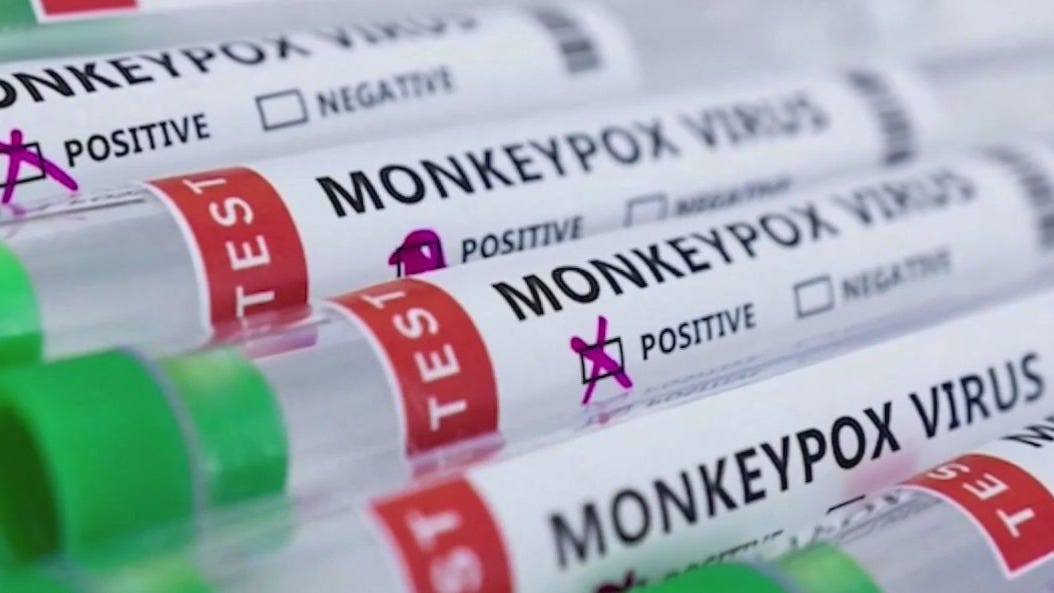Mpox strain identified for first time in US, health officials say

Health officials on Saturday said they have identified the first U.S. case of an mpox strain that has recently prompted global health alerts over concerns about its spread, severity and transmissibility.
The person had recently returned to California after traveling to eastern Africa, where the strain (clade I mpox) has affected several countries, the Centers for Disease Control and Prevention said in a news release. State and federal health officials said the risk to the public from this first U.S. case is low.
The person is isolating at home, and there is no evidence that the mpox clade I strain is spreading between people in California or elsewhere in the U.S., state health officials said. People who had close contact with the person are also being contacted by public health workers.
Mpox can cause a painful rash with sores, enlarged lymph nodes, fever, headache, muscle ache, back pain and low energy, the World Health Organization said. Most people fully recover after a few weeks, although the risk with clade I mpox has historically believed to be higher than with the clade II strain that has circulated in the U.S. since 2022.
In severe cases, some people get very sick from bacterial infections from the lesions, pneumonia, loss of vision, dehydration or malnutrition from vomiting or diarrhea. People can also have infections of their blood, brain, heart or genital organs. Deaths occur in rare cases.
Human cases of mpox date back to the 1970s in the Democratic Republic of the Congo, according to the National Institutes of Health. But in recent years, the virus has spread globally, and the CDC says over 100,000 people have been infected with the clade II strain.
Why is this case notable?
Clade I has historically caused more severe illness compared to clade II, the strain associated with other U.S. cases of mpox. California public health officials said recent infections indicate the clade I strain may not be as clinically severe compared to previous outbreaks, especially when people have access to quality medical care.
Public health officials have been concerned that clade I could begin spreading more widely. A single case linked to travel is cause for vigilance, not panic, experts say.
“There's a direct link to where we know the outbreak is occurring,” said Raynard Washington, director of the Mecklenburg County Public Health Department, in Charlotte, North Carolina. “There isn't evident transmission happening here in the U.S., and so I think there’s certainly reason to be cautious.”
The first case is a reminder for people traveling to affected regions to be careful, and for those in high-risk groups to get their full vaccine series for mpox if they haven’t already done so, he added. Washington is also the chair of the Big Cities Health Coalition, which represents public health leaders in metropolitan hubs.
How does mpox spread?
Mpox spreads from animals to people, and it received its former name, monkeypox, because that is the animal it was first discovered in. It comes from the same virus family as smallpox, and it spreads through physical contact, the CDC said.
The new mpox strain is believed to spread through close, intimate and sexual contact that is skin to skin, as well as touching contaminated materials, such as clothing or bedding. The CDC said casual contact, such as during a flight, is unlikely to pose a risk of spread.
People at greater risk of contracting mpox include: gay men, bisexual men, men who have sex with men, and transgender and nonbinary people, as well as others with exposure to someone infected. Health officials recommend these groups get the mpox vaccine to protect against both strains.
The incubation period is between three and 17 days. During this time, a person does not have symptoms and may feel fine.
The California Department of Public Health identified the strain through confirmatory testing, a news release said. The infected person received health care in San Mateo County, near San Francisco, based on their travel history and symptoms. State health officials reported the case to the CDC, which plans to conduct further lab testing.
Health officials monitoring spread of mpox
In August, the World Health Organization declared a global health emergency for the strain, which is different than the clade II strain that has circulated in the U.S. since 2022. The Africa Centres for Disease Control and Prevention said there have been over 51,000 cases and more than 1,000 people have died on the continent in the latest mpox outbreak in 2024. Cases have mostly been in Congo.
Outside of Africa, a handful of cases have popped up in Europe, India and Southeast Asia.
The U.S. also issued travel guidance to central and eastern Africa earlier this year due to outbreaks.
(This story has been updated to add new information.)